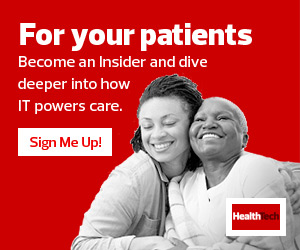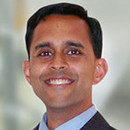Move Your Data Forward from ‘Step Zero’
“Getting sensor data is step zero in my mind, and it’s fantastic that we already are. But then what do you do with the data? What do you expect the patient or customer to do with the data?” asked Priya Abani, CEO of mobile electrocardiogram device company AliveCor.
In a panel discussion on “The Blurring Lines of Health Devices,” three healthcare technology startup CEOs shared their views on the need to make data actionable for providers and patients.
Companies are much more focused on customers and the customer experience in the health tech space, influenced by the COVID-19 pandemic, Abani said. The next step is to focus the data and make it more intelligent.
The interest in use cases for consumer-grade health devices from medical research communities is growing, added Oura CEO Harpreet Rai. The consumer health tech company produces the Oura Ring, which tracks health information such as heart rate and body temperature. In 2020, The University of California, San Francisco partnered with the company on a study to predict the onset of COVID-19 symptoms using data collected by Oura Ring wearers.
RELATED: Learn how to integrate remote patient monitoring data to improve health outcomes.
Eddie Martucci, CEO and co-founder of biotech software company Akili Interactive, said the landscape had changed even before the pandemic. Devices were much different five to 10 years ago; now, patients are looking for a more personalized healthcare experience.
“I believe we’re going to see a massive acceleration of good data on really futuristic technology that wouldn’t have happened a decade ago,” Martucci said.
Earlier this year, his company announced collaborations with three healthcare systems to study the use of Akili’s digital treatment for patients experiencing cognitive dysfunction or “brain fog” after COVID-19.
“This is the new age of medicine,” Abani added. “This is the most transformative time.”
‘We Can Make a Big Difference in People’s Lives’
Dr. Alexa B. Kimball experienced firsthand what it was like to rapidly deploy a widespread telehealth solution amid the pandemic. On a Wednesday, she told her team at Beth Israel Deaconess Medical Center in Boston that they needed a telehealth plan by Monday, and they worked through the weekend to make it happen.
“We have increased access for all sorts of different populations. We’ve proved that if we support this right, we can make a big difference in people’s lives, and we’re starting to really optimize how we build things around it to really make sure that the healthcare is delivered in a way that is the most helpful and useful,” said Kimball, president and CEO of Harvard Medical Faculty Physicians at Beth Israel Deaconess. She is also a professor of dermatology at Harvard Medical School.
The panel discussion “Getting Personal with Digitally-Enabled Care” also highlighted the importance of healthcare accessibility.












